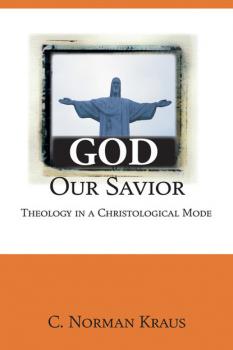ТОП просматриваемых книг сайта:
C. Norman Kraus
Список книг автора C. Norman KrausАннотация
Too often the biblical passages governing sexual morality are interpreted in simplistic, proof texting ways that take no account of the cultural gap between ancient Israel and the modern world. And too often the official positions of churches are determined by opinion polls and majority votes rather than a sober theological and ethical assessment of the issues involved. A third way is called for that avoids the errors of both naive fundamentalism and the Bible-dismissing zeitgeist–a way that puts theological reflection at the forefront.
This little book aims to provide a theologically informed, biblical approach to help Christians find a new way forward in their dialogue over questions surrounding homosexuality. It deconstructs the Augustinian theological tradition that has defined, evaluated, and regulated sexual behavior in the western Christian traditions. Kraus maintains that the doctrine of the creation (rather than the doctrine of sin) must be the framework for understanding sexuality and sexual desire. He argues that the basic justification for erotic physical intimacy is the fulfillment of God's original intention for human community (shalom).
Beginning with the definition of «the image of God» as a social symbol that mirrors the Trinity, Kraus calls the church to reflect that trinitarian image as it is seen in Christ. He argues that this stance at the very least calls the church to empathetic inclusion of the GLBTQ community in its ongoing discernment conversation, which, of course, means full participation in its life.
This little book aims to provide a theologically informed, biblical approach to help Christians find a new way forward in their dialogue over questions surrounding homosexuality. It deconstructs the Augustinian theological tradition that has defined, evaluated, and regulated sexual behavior in the western Christian traditions. Kraus maintains that the doctrine of the creation (rather than the doctrine of sin) must be the framework for understanding sexuality and sexual desire. He argues that the basic justification for erotic physical intimacy is the fulfillment of God's original intention for human community (shalom).
Beginning with the definition of «the image of God» as a social symbol that mirrors the Trinity, Kraus calls the church to reflect that trinitarian image as it is seen in Christ. He argues that this stance at the very least calls the church to empathetic inclusion of the GLBTQ community in its ongoing discernment conversation, which, of course, means full participation in its life.


